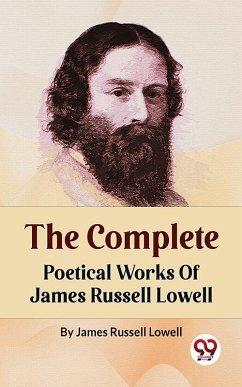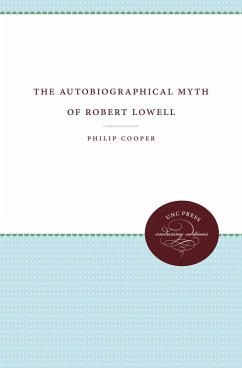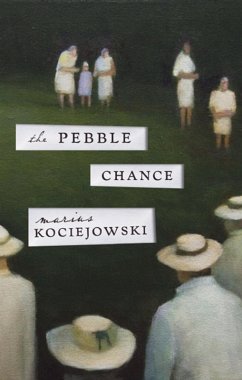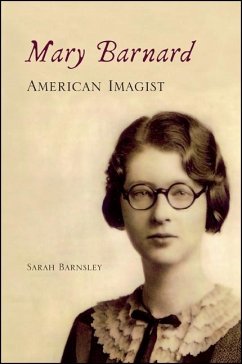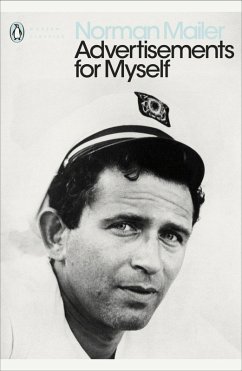
Warren, Jarrell, and Lowell (eBook, ePUB)
Collaboration in the Reshaping of American Poetry
Versandkostenfrei!
Sofort per Download lieferbar
15,95 €
inkl. MwSt.
Weitere Ausgaben:

PAYBACK Punkte
8 °P sammeln!
Robert Penn Warren, Randall Jarrell, and Robert Lowell maintained lifelong, well-documented friendships with one another, often discussing each other's work in private correspondence and published reviews. Joan Romano Shifflett's Warren, Jarrell, and Lowell: Collaboration in the Reshaping of American Poetry traces the artistic and personal connections between the three writers. Her study uncovers the significance of their parallel literary development and reevaluates dominant views of how American poetry evolved during the mid-twentieth century. Familiar accounts of literary history, most prom...
Robert Penn Warren, Randall Jarrell, and Robert Lowell maintained lifelong, well-documented friendships with one another, often discussing each other's work in private correspondence and published reviews. Joan Romano Shifflett's Warren, Jarrell, and Lowell: Collaboration in the Reshaping of American Poetry traces the artistic and personal connections between the three writers. Her study uncovers the significance of their parallel literary development and reevaluates dominant views of how American poetry evolved during the mid-twentieth century.
Familiar accounts of literary history, most prominently the celebration of Lowell's Life Studies as a revolutionary breakthrough into confessional poetry, have obscured the significance of the deep connections that Lowell shared with Warren and Jarrell. They all became quite close in the 1930s, with the content and style of their early poetry revealing the impact of their mentors John Crowe Ransom and Allen Tate, whose aesthetics the three would ultimately modify and transform. The three poets achieved professional maturity and success in the 1940s, during which time they relied on one another's honest critiques as they experimented with changes in subject matter and modes of expression. Shifflett shows that their works of the late 1940s were heavily influenced by Robert Frost. This period found Warren, Jarrell, and Lowell infusing ostensibly simple verse with multifaceted layers of meaning, capturing the language of speech in diction and rhythm, and striving to raise human experience to a universal level.
During the 1950s, the three poets became public figures, producing major works that addressed the nation's postwar need to reconnect with humanity. Warren, Jarrell, and Lowell continued to respond in interlocking ways throughout the 1960s, with each writer using innovative stylistic techniques to create a colloquy with readers that directed attention away from superficial matters and toward the important work of self-reflection.
Drawing from biographical materials and correspondence, along with detailed readings of many poems, Warren, Jarrell, and Lowell offers a compelling new perspective on the shaping of twentieth-century American poetry.
Familiar accounts of literary history, most prominently the celebration of Lowell's Life Studies as a revolutionary breakthrough into confessional poetry, have obscured the significance of the deep connections that Lowell shared with Warren and Jarrell. They all became quite close in the 1930s, with the content and style of their early poetry revealing the impact of their mentors John Crowe Ransom and Allen Tate, whose aesthetics the three would ultimately modify and transform. The three poets achieved professional maturity and success in the 1940s, during which time they relied on one another's honest critiques as they experimented with changes in subject matter and modes of expression. Shifflett shows that their works of the late 1940s were heavily influenced by Robert Frost. This period found Warren, Jarrell, and Lowell infusing ostensibly simple verse with multifaceted layers of meaning, capturing the language of speech in diction and rhythm, and striving to raise human experience to a universal level.
During the 1950s, the three poets became public figures, producing major works that addressed the nation's postwar need to reconnect with humanity. Warren, Jarrell, and Lowell continued to respond in interlocking ways throughout the 1960s, with each writer using innovative stylistic techniques to create a colloquy with readers that directed attention away from superficial matters and toward the important work of self-reflection.
Drawing from biographical materials and correspondence, along with detailed readings of many poems, Warren, Jarrell, and Lowell offers a compelling new perspective on the shaping of twentieth-century American poetry.
Dieser Download kann aus rechtlichen Gründen nur mit Rechnungsadresse in A, D ausgeliefert werden.





